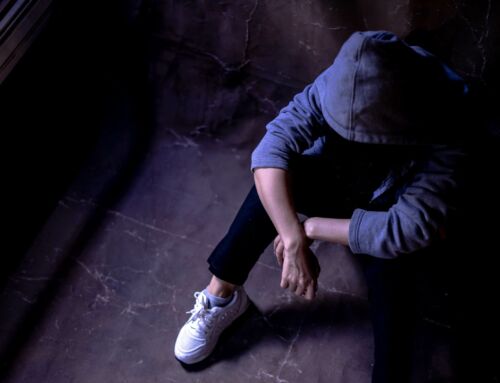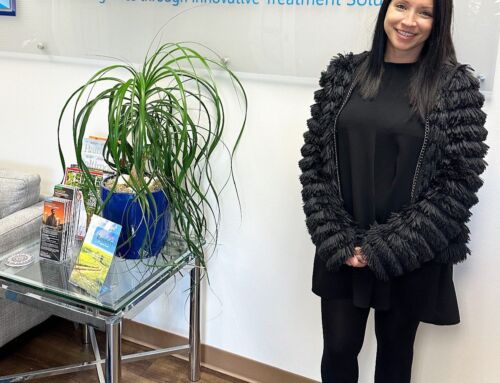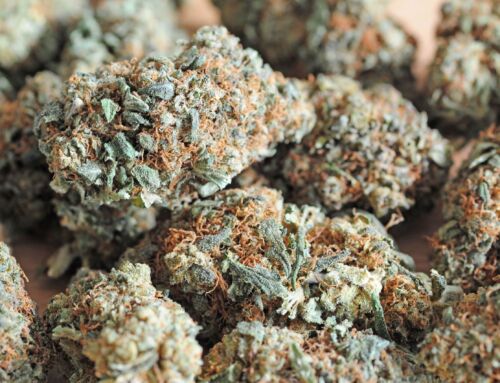For years the addiction treatment industry has grown as a fairly unregulated industry with little oversight into the daily practices that take place at facilities nationwide. Over the course of the last 5-10 years, as the addiction epidemic in America has grown so has the addiction treatment industry. With it has grown old practices and new innovations that fall under the umbrella of unethical practices and illegal activities. As the industry has grown with an influx of venture capitalist money and facility owner/operators with no clinical experience, more and more treatment facilities have opened throughout the country with a primary purpose of financial gain rather than patient care. With the principle at work of “if we don’t regulate ourselves, someone will come and regulate us”, the addiction treatment industry has entered a crossroads as more outside governmental and community organizations scream for oversight and regulation and the ethical operators nationwide becoming more vocal about what used to be unethical behaviors that were simply ignored.
In what has become the belly of the beast, Delray Beach, FL (sometimes referred to the “recovery capital of America”) has seen unethical and illegal practices of addiction treatment industry come under fire from governmental task forces and an undercover operation called “Operation Thoroughbred.” Over the last 6 months these steps have seen the arrest of several treatment center operators, recovery house owners and treatment brokers in the South Florida area. An online personality named after Alcoholics Anonymous cofounder Bob Smith has become famous on Facebook in treatment and recovery circles for exposing such practices in an online blog. Articles detailing similar practices in Staten Island, New York and in the state of Arizona helped expose the dark side of the addiction treatment and recovery industry. “A comprehensive understanding of many of these issues and unethical practices was profiled by respected interventionist Carey Davidson of Hayes, Davidson and Associates in the blog “Navigating the Maze of Addiction Treatment”. Addiction treatment is a $35 billion dollar industry and what was once an industry dominated by family run organizations by people in recovery looking to aid people and families through their darkest hours has become a burgeoning business landscape with patients seen as dollar signs, business practices that only value “heads in beds” and patient needs coming second (or worse) to what type of insurance policy a patient has and the reimbursement the facility will see because of it. No longer is patient care driving addiction treatment, but instead at many facilities nationwide money has become the driving force behind all, including clinical, decision-making.
Although there are numerous practices within the addiction treatment industry that fall under ethically questionable, here are the three biggest offenders and practices that have sadly and unfortunately become fairly standard.
Patient Brokering
Patient brokering, body brokering and the practices of paying for addicts isn’t new. For many years, some addiction treatment facilities would pay “kickbacks” or referral fees to someone for sending them a patient that admitted to their facility. Over the course of the last 5 years or so, the practice has become so widespread and so normalized, that often patients themselves are being paid cash or even drugs in order to admit into a facility. Some treatment centers even breed these types of behaviors with their clients, admitting a patient and once they have some sobriety time, teaching them to go out and recruit others suffering from addiction. Each patient comes with a price tag, often several thousands of dollars. Additional patient brokering tactics can involve paying someone to enter into a detox or a treatment center to coerce patients of that facility to leave and go to another facility. Stories of treatment centers paying patients with bags of cash, drugs, car payments or apartments to live are also fairly commonplace. Additionally, supportive recovery services like halfway houses or recovery house owners have gotten involved, taking kickbacks for sending house residents to a specific facility for a financial kickback. Often times, the treatment centers and recovery house operators enter into vague, 1099 “case management” agreements, attempting to get around the laws and prosecution. Recovery houses often then offer their residents illegal free rent, food or cigarettes in order to entice them to stay in the house and attend a specific treatment program.
Online Marketing Tactics
Online marketing tactics have become a dirty game in the addiction treatment facility. This typically takes one of two forms. First, an independent person or organization creates a generic treatment “help” web site that directs people to a generic toll-free treatment help line. These phones are typically manned by young people, often only several months in recovery with no clinical experience. The caller, usually the person seeking help or a family member, is asked generic questions and then told they are being “assessed” or “evaluated” by the “specialist”. The person on the phone uses techniques to connect with the caller, making sure they know they are being listened to and understood. Eventually a referral suggestion is made to a specific treatment center. What actually is happening is that the web site and phone number are taking those calls and selling them to the highest bidder. Numerous treatment centers are paying for these leads. Never mind that the caller has not actually been evaluated or assessed for their necessary clinical needs and never mind that the treatment center purchasing the leads are admitting patients that often are clinically inappropriate for their center. It is simply a tactic to put “heads in beds”. The second situation involves a similarly generic web site and toll-free help line, but this time the web site and phone number are not owned by an independent party selling a “lead,” but rather owned by a specific treatment center filtering patients to its own doors.
Another online marketing tactic involves these independent helpline operators or specific treatment centers going online and changing information to reroute calls and online correspondences to their own sites. Hacking into Google and other search engines, changing contact information so that a caller that thinks they are calling a specific treatment center or recovery support service is rerouted to a different treatment center or a company that will go around and sell that call to whatever treatment facility has purchased it. This is a dangerous practice that sends patients with specific clinical needs to facilities ill-equipped to handle them but that will admit them regardless.
One final online tactic is “virtual offices” or treatment centers that pay for placement on Google or other search engines to make it look like they are located in an area they are not, but in an attempt to bring calls into their facility so they can then sell the caller on getting on a plane and flying to their specific facility. This looks like someone online searching for help Googles “addiction treatment in Maryland” and what comes up are several addiction treatment centers that are not located in Maryland but that show addresses somewhere within the state. Its false advertising. It’s an outright lie, with the hope that the individual seeking help will call them rather than a facility actually located within the state and hopefully be coerced onto taking a flight to their out of state facility.
Which brings us to…
Patient Enticement
Patient enticement is an old school tactic that often includes enticing patients to a treatment facility by purchasing things like flights, food or cigarettes. It is tied into the previous two practices mentioned. A patient with little funds could be talked into getting on a place if that flight is paid for, although such a practice is illegal. Enticing a patient to stay at a facility by purchasing them food, rides or cigarettes is another common practice that takes place in recovery houses. The biggest one typically, however, is free rent. Allowing a client to stay rent free at a recovery house, because the recovery house owner is actually receiving an illegal kickback for sending that client to a specific treatment center.
Working in healthcare as a whole is a sacred calling. Dealing with people and families during times of crisis is something that cannot be taken lightly, often even more so when dealing with those in the grips of addiction. The stigma that surrounds addiction often means that individuals and families will wait to the last possible second to reach out and ask for help. They feel terrified, alone, that no one could possibly understand what they are experiencing. Parents of addicted children have no manual for this sort of thing, so they reach out in the darkness with the slightest hope that someone will be there to understand, to calm their anxiety and to find their child the help they desperately need. Unethical providers in the treatment industry prey upon this fear, capitalizing on the overwhelming feelings families are experiencing when they pick up a phone in panic and make a call. They desperately want to find their loved one help and unethical treatment operators leverage that into getting the addicted person into their own treatment center for financial gain, giving little thought or weight into patient needs or clinical appropriateness.
A difficult thing is that parents in these times of crisis aren’t overly concerned about what types of practices border on ethical behaviors. They simply want their loved one to get help and they want it yesterday. Little thought is given to a treatment center that offers a plane ticket or free rent, especially for families in financial hardship. Such practices to them look like a gift, an answered prayer or the kindness of a stranger. What people don’t see is the terrible damage such practices do to the industry as a whole and how they impact other parents and families looking for help for their loved ones. Just as addiction does not just impact the addict but ripples out to impact the family, loved ones and anyone close to the addicted person, so does the unethical and illegal practices of addiction treatment industry ripple out and do damage. It impacts other families seeking help. Insurance companies have taken a microscope to the addiction treatment field and its practices, becoming irritated at such behaviors and therefore making it harder and harder for people to find help. Insurance companies use such unethical practices to cut benefits and reimbursement, making it difficult for ethical providers to get paid, pay their clinical staff and fight for a patient to have enough time in treatment to recover. So a plane ticket or free rent or using a patient broker may not matter to one individual or family because “my child is now sober,” what they don’t see if how that creates barriers for tens of thousands of other people to find necessary help. A good question to ask is “if the facility your loved one wen to is engaging in unethical or illegal activities to bring patients into their facility, how do you really think the vital clinical care they will receive at that facility is going to be?” If a provider is cutting corners on finding patients, the thought would have to be doesn’t it reason that they would be cutting corners and acting unethically and illegally in other aspects of their operations?
So what can be done? What can happen to stem the tide of rising unethical and illegal tactics in the addiction treatment industry as we as a nation face an escalating addiction epidemic? More and more people are in need of help and are finding themselves the victims of shady, unethical and illegal business practices. First, people need to speak out. Individuals, families, communities, ethical providers and governing bodies need to come forward and do what they can to expose such unethical practices and operations. Organizations like the National Associate of Addiction Treatment Providers can take a stand, calling out unethical operations, banning them from membership or conference attendance. Finally, ethical addiction treatment operators need to come together and work in conjunction in terms of working together in a treatment continuum as well as speaking out against unethical and illegal practices of addiction treatment industry. Those suffering from addiction, their families, our communities and industry deserve better and we can do better. We simply must work together.
If you or someone you know is in need of help because of drug and/or alcohol abuse or addiction, please give us a call. Maryland Addiction Recovery Center offers the most comprehensive dual diagnosis addiction treatment in the Baltimore, Maryland, Washington, DC and Virginia area. If we aren’t the best fit for you or your loved one, we will take the necessary time to work with you to find a treatment center or provider that better fits your needs. Please give us a call at (410) 773-0500 or email our team at info@marylandaddictionrecovery.com. For more information on all of our drug addiction and alcohol addiction services and recovery resources, please visit our web site at www.marylandaddictionrecovery.com.

Table of Contents





